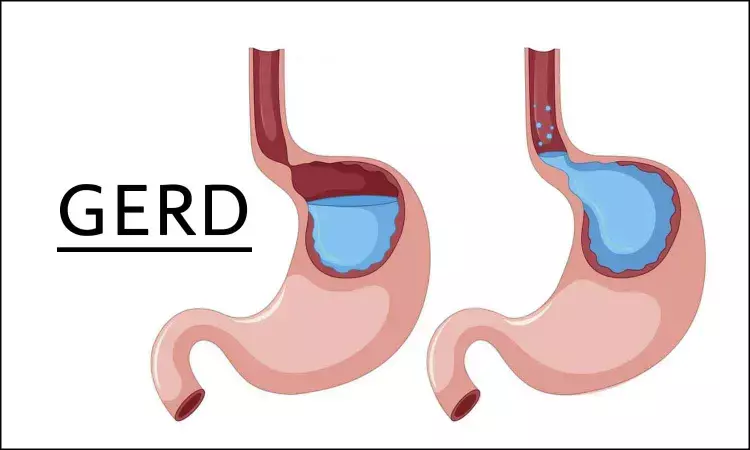- Home
- Medical news & Guidelines
- Anesthesiology
- Cardiology and CTVS
- Critical Care
- Dentistry
- Dermatology
- Diabetes and Endocrinology
- ENT
- Gastroenterology
- Medicine
- Nephrology
- Neurology
- Obstretics-Gynaecology
- Oncology
- Ophthalmology
- Orthopaedics
- Pediatrics-Neonatology
- Psychiatry
- Pulmonology
- Radiology
- Surgery
- Urology
- Laboratory Medicine
- Diet
- Nursing
- Paramedical
- Physiotherapy
- Health news
- Fact Check
- Bone Health Fact Check
- Brain Health Fact Check
- Cancer Related Fact Check
- Child Care Fact Check
- Dental and oral health fact check
- Diabetes and metabolic health fact check
- Diet and Nutrition Fact Check
- Eye and ENT Care Fact Check
- Fitness fact check
- Gut health fact check
- Heart health fact check
- Kidney health fact check
- Medical education fact check
- Men's health fact check
- Respiratory fact check
- Skin and hair care fact check
- Vaccine and Immunization fact check
- Women's health fact check
- AYUSH
- State News
- Andaman and Nicobar Islands
- Andhra Pradesh
- Arunachal Pradesh
- Assam
- Bihar
- Chandigarh
- Chattisgarh
- Dadra and Nagar Haveli
- Daman and Diu
- Delhi
- Goa
- Gujarat
- Haryana
- Himachal Pradesh
- Jammu & Kashmir
- Jharkhand
- Karnataka
- Kerala
- Ladakh
- Lakshadweep
- Madhya Pradesh
- Maharashtra
- Manipur
- Meghalaya
- Mizoram
- Nagaland
- Odisha
- Puducherry
- Punjab
- Rajasthan
- Sikkim
- Tamil Nadu
- Telangana
- Tripura
- Uttar Pradesh
- Uttrakhand
- West Bengal
- Medical Education
- Industry
GERD Increases Risk of primary acquired nasolacrimal duct obstruction among elderly, confirms study

Researchers have found in a new study published in Eye that gastroesophageal reflux disease (GERD) significantly increases the risk of primary acquired nasolacrimal duct obstruction (PANDO), especially among women and older adults. The findings show that patients who have GERD face more than twofold risk of PANDO compared to those who do not have GERD. The study was conducted by Yung-Yu Chu and fellow researchers.
This large global study was predicated on over 157 million patient records worldwide in 18 different countries, and assessed the association between GERD and PANDO. This was a retrospective cohort study with data collected worldwide from the TriNetX Global Collaborative Network. Patients diagnosed with GERD between January 2004 and November 2024 were included in the study along with non GERD controls. To validate results, patients with prior or existing lacrimal passage disorders were excluded. The primary outcome was incidence of PANDO, with follow up of up to 20 years, for each patient and for a specified duration. Lastly, we used propensity score matching to balance baseline characteristics between the patients, and Cox proportional hazards regression to assess the relative risk.
Key Findings
After conducting propensity score matching, 876,330 total patients from both the GERD and control groups were included.
GERD patients were at an increased risk of developing PANDO (HR: 2.49; 95% CI: 2.18–2.85; p< 0.001).
The risk was higher in females (HR: 2.74; 95% CI: 2.32–3.24) and in older individuals aged ≥60 years (HR: 3.12; 95%CI: 2.59–3.74).
Comorbidities including diabetes, dyslipidemia, hypertension, ischemic heart disease, chronic kidney disease, and sinusitis increased the risk of GERD-related PANDO.
The underlying mechanism linking GERD to PANDO is not clear, although chronic inflammation may play a role. Acid reflux has been associated with inflammatory processes beyond the esophagus, which may lead to structural and functional changes in the nasolacrimal duct. Chronic exposure to gastric acid reflux may cause mucosal irritation, tissue remodeling, and fibrosis, thus increasing the risk of ductal obstruction. These findings highlight the need for a higher level of clinical awareness and interprofessional collaboration in the management of GERD patients, focusing on gastrointestinal health and eye health.
Reference:
Dr Riya Dave has completed dentistry from Gujarat University in 2022. She is a dentist and accomplished medical and scientific writer known for her commitment to bridging the gap between clinical expertise and accessible healthcare information. She has been actively involved in writing blogs related to health and wellness.
Dr Kamal Kant Kohli-MBBS, DTCD- a chest specialist with more than 30 years of practice and a flair for writing clinical articles, Dr Kamal Kant Kohli joined Medical Dialogues as a Chief Editor of Medical News. Besides writing articles, as an editor, he proofreads and verifies all the medical content published on Medical Dialogues including those coming from journals, studies,medical conferences,guidelines etc. Email: drkohli@medicaldialogues.in. Contact no. 011-43720751


